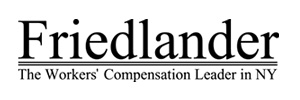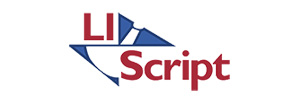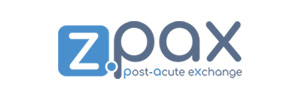2025 Legislative Session Wraps Up
The 2025-26 Legislative Session ended on Friday, June 13th in the Senate and on Tuesday, June 17th in the Assembly. It is expected that the Legislature will return to Albany to deal with issues arising from the passage of Congress’ “One Big, Beautiful Bill,” as well as possible immigration-related issues.
The following is a summary of certain bills impacting skilled nursing and assisted living providers in New York. For bills that have passed both houses, the Governor has 10 days to act once bills are delivered to her desk (excluding weekends/holidays).
SKILLED NURSING:
Equity Withdrawal (S.5369, Rivera / A.2051, Paulin)
This bill allows for the withdrawal of equity of up to 5% per facility without a request to DOH if it can demonstrate compliance with the previous two quarters of the State’s minimum staffing requirements. Facilities that were not able to be in compliance with the previous two quarters of the State’s minimum staffing requirements may still withdraw up to 3% of equity without a request to the DOH. This bill passed both Houses and is waiting to be sent to the Governor for action (Senate: 58-0; Assembly: 133-0).
Workplace Violence Prevention Program (A.203-B, Cruz / S.5294-B, Sepulveda)
This bill requires hospitals and nursing homes to develop a workplace violence prevention program. NYSHFA|NYSCAL worked with the sponsors to amend the bill to provide that compliance by nursing homes with certain current federal regulations requiring facilities to annually develop emergency preparedness assessments and facility assessments shall satisfy the requirements of the bill. This bill passed both Houses and is waiting to be sent to the Governor for action (Senate: 58-1; Assembly: 146-0).
Not-for-Profit & Public Nursing Home Reimbursement Program (A.8738, Bronson / S.8222, Brouk)
This bill – modeled after the CINERGY program in New York City – creates a grant program for certain upstate not-for-profit and public nursing homes to work collaboratively to improve the quality of care and services provided to residents. This bill passed both Houses and is waiting to be sent to the Governor for action (Senate: 57-2; Assembly: 141-0).
Inclusion of Therapy Professionals Within the 3.5-Hour State Staffing Mandate (A.600, Hevesi / S.8286, Addabbo)
This bill requires time spent providing resident-facing direct care by physical, occupational, respiratory, and recreational therapists and their certified paraprofessional assistants to be counted toward a nursing home’s minimum staffing hours as required by law. This bill was introduced in both the Senate and Assembly Health Committees but was not considered.
Grieving Families Act (S.4423, Hoylman-Sigal / A.6063, Lunsford)
This bill, which was previously vetoed three times by the Governor and has not been amended to address the Governor’s concerns, narrows the scope of those close family members who would be entitled receive compensation for their non-economic losses as well as funeral expenses, medical care relative to the injury that caused the death, and pecuniary injuries. Close family members are defined as the decedent’s spouse or domestic partner, distributees, and guardians, or those individuals over which the decedent had guardianship. This bill passed both Houses and is waiting to be sent to the Governor for action (Senate: 51-10; Assembly: 131-13).
Medical Aid in Dying Act (S.138, Hoylman-Sigal / A.136, Paulin)
This bill allows for mentally competent, terminally ill adults with a prognosis of six months or less to live to request self-administered medication from their treating physician that can expedite their death, setting forth certain protections for healthcare providers. This bill passed both Houses and is waiting to be sent to the Governor for action (Senate: 35-27; Assembly: 81-67)
FAIR Business Practices Act (S.8416, Comrie / A.8427-A, Lasher)
This bill, the “Fostering Affordability and Integrity through Reasonable (FAIR) Business Practices Act” authorizes the Attorney General to bring forth an action or proceeding against businesses or individuals conducting business within New York State if they have engaged in, or about to be engaged in, practices that are deemed unfair, deceptive, or abusive to consumers. This bill expands current statute to include actions that are not only deceptive, but also “unfair” and “abusive.” “Unfair” is defined as an act that causes or is likely to cause substantial injury which is not reasonably avoidable. NYSHFA is analyzing the bill to determine any potential implications for its members. This bill passed both Houses and is waiting to be sent to the Governor for action (Senate: 37-22; Assembly: 91-50).
Increased Nursing Home Penalties (A.1118, Paulin / S.5744, Cleare)
This bill increases the penalty amount for nursing homes where Public Health Law violations have occurred from $3,000 to $5,000 for civil penalties and from $5,000 to $10,000 for subsequent violations. For violations of serious physical harm, the penalty would increase from $10,000 to $20,000. All fines collected over $10,000 would be deposited into the nursing home quality improvement pool. This bill died on 3rd reading in both Houses.
Decedent Storage in Nursing Homes (A.1365-A, Paulin) / S.15-A, Skoufis)
This bill requires nursing homes to maintain designated and temporary on-site storage space for decedents in instances of excess mortality during a declared state of emergency until safe transport can be arranged. This bill fails to recognize that hundreds of nursing homes could potentially be required to undertake new brick and mortar construction projects, and as such, NYSHFA will actively seek its veto. This bill passed both Houses and is waiting to be sent to the Governor for action. (Senate: 38-21; Assembly: 108-41)
Nursing Home Temporary Operator Program (S.1223, Rivera) / No Same As)
This bill extends to nursing homes the current provisions of Public Health Law §2806-a which authorizes the Commissioner of Health to appoint a temporary operator for a general hospital, diagnostic and treatment center, adult home or assisted living facility in the event such a facility is experiencing severe financial and/or quality of care issues. This bill passed the Senate (47-11).
Antipsychotic Use in Nursing Homes (A.1461-A, Paulin) / S.893-A, Sepulveda)
This bill outlines the process for use and administration of antipsychotic medications in nursing homes and sets forth provisions regarding dispensing consent. While subsequent amendments sought to clarify consent and shift away from written approval, concerns remain over its potential unintended consequences. This bill died on 3rd reading in the Assembly and was not considered by the Senate Aging Committee.
Nursing Home Rebasing (S.5229, Rivera / A.6272, Woerner)
This bill requires the Department to update the non-capital component of the Medicaid rate no later than 4/1/26 and at least every five years thereafter using the most recent cost report data and updating the rates to reflect actual base year costs. Additionally, it also requires the Department to establish and consult with a technical assistance workgroup comprised of nursing home rate-setting experts. This bill was introduced in both the Senate and Assembly Health Committees but was not considered.
Nursing Home Closures (S.4275 Kavanagh / No Same As)
This bill establishes new requirements for nursing home closures based on the Rivington House case in New York City. It would require greater transparency to the community when a facility is set to close, however, with extensive regulations already in place for closures, this bill is redundant and unnecessary. This bill passed the Senate (32-20).
Video Monitoring Devices in ACFs and SNFs (A.1967-B (Paulin) / S. 7190, Scarcella-Spanton)
This bill requires assisted living and skilled nursing facilities to allow residents or their legal representatives to install electronic monitoring devices, such as cameras, in their living spaces. This legislation mandates that facilities must inform residents of this right, establishes consent requirements for roommates, and sets forth provisions regarding the placement, maintenance, and use of such surveillance devices. This bill died on 3rd reading in the Assembly and was not considered by the Senate Aging Committee.
ASSISTED LIVING:
Medical Evaluations for Assisted Living Eligibility (S. 3361, Rivera / A.2027, Paulin)
This bill authorizes assisted living program (ALP) medical evaluations to be signed by a physician, physician assistant (PA), or nurse practitioner (NP), maintaining pre-existing provider-patient relationships and streamlining the process. This bill passed both Houses and is waiting to be sent to the Governor for action. (Senate: 59-0; Assembly: 145-0).
SSI Increase for Assisted Living Providers (S.180-A, Persaud / A.4504, Davila)
This bill provides for a one-time 10% SSI increase for Congregate Care Level 3 providers, which has not been updated since 2007. NYSHFA|NYSCAL has been a leader on getting this bill introduced and passed. The bill language was also included in the Assembly’s one-House budget bill but was excluded from the final FY 2025-26 Enacted State Budget. This bill passed the Senate and died in the Assembly Social Services Committee. (Senate: 58-0).
Increased Penalties for Adult Care Facilities (S.1858-A, Rivera / A.1910-A, Paulin)
This bill increases penalties for adult care facilities vis a vis violations of endangerment or harm and amends the length of time for the commencement of a hearing to take place regarding operating certificate revocation, suspension, or limitation. This bill died in the Senate Rules Committee and in the Assembly Health Committee.
ALP Bed Capacity Expansion (A.2731, Paulin / S.7859, Rivera)
This bill authorizes existing assisted living program (ALP) providers, licensed on or before April 1, 2024, to apply for an expedited approval process to add up to nine additional beds provided there is no need for major renovation or construction. This bill died in the Senate Finance and Assembly Ways & Means Committees.
Video Monitoring Devices in ACFs and SNFs (A.1967-B (Paulin) / S. 7190, Scarcella-Spanton)
This bill requires assisted living and skilled nursing facilities to allow residents or their legal representatives to install electronic monitoring devices, such as cameras, in their living spaces. This legislation mandates that facilities must inform residents of this right, establishes consent requirements for roommates, and sets forth provisions regarding the placement, maintenance, and use of such surveillance devices. This bill died on 3rd reading in the Assembly and was not considered by the Senate Aging Committee.
Limited Nursing Services (S.3184, Rivera / A.525 Solages)
This bill allows ACFs to offer non-continuous nursing services which would be left up to the facility’s discretion to decide whether services are needed at any given time in limited circumstances. This bill does not authorize ACFs to offer permanent nursing services such as those offered under an EALR licensure. This bill died in the Senate Rules Committee and was not considered by the Assembly Ways & Means Committee.
NYSHFA | NYSCAL will continue to provide updates on these bills and other relevant initiatives as necessary.
NYSHFA | NYSCAL CONTACTS:
Stephen B. Hanse, Esq.
President & CEO
518-462-4800 x11
Kristin DeVries, MA, MPP
Director of Government Relations
518-462-4800 x14





